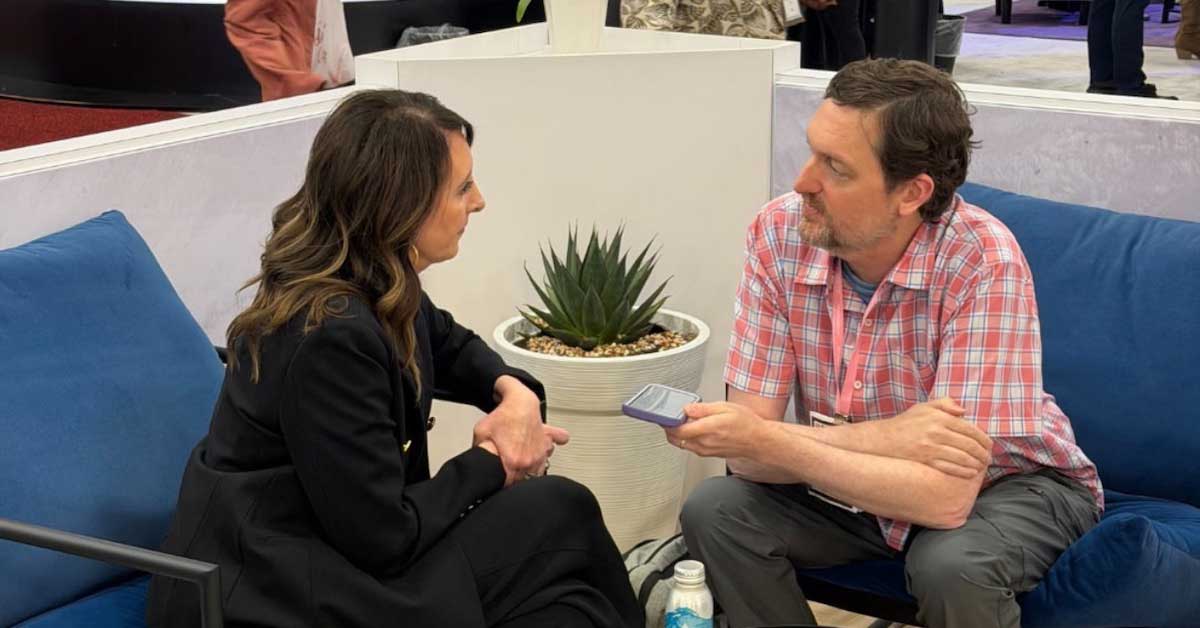Eric Rozenberg, CMP, CMM, has owned a business for as long as he can remember. Following 20 years running his own corporate events agency and working in 50 countries with clients such as McKinsey, Johnson & Johnson and Café de Colombia, he’s spent the past five years developing the Americas for a SaaS ticketing platoform (used by clients like FIFA) and volunteering with EO (Entrepreneurs’ Organization), coaching entrepreneurs from various industries and enabling them to grow and improve their businesses.
This year, Rozenberg—a former chair of the MPI International Board of Directors, founder of the Event Business Formula and host of The Business of Meetings podcast—debuted “A Masterclass in Event Business Management,” a three-month program that aims to help owners of event businesses unlock lucrative futures while also finding much needed peace, sanity and time for loved ones along the way.
.jpg?sfvrsn=4ad74c55_1)
So what better time to have Rozenberg begin writing monthly MPI articles intended to help business owners succeed—beginning with a focus next month on the imperative of learning?
We caught up with him to discuss his new masterclass, the importance of mental health, key skills entrepreneurs must possess and what the meeting industry must focus on to succeed.
“It’s a fabulous moment to own your own business,” Rozenberg says. “By 2027, according to MBO Partners, more than half of the U.S. workforce will be independent.”
Is the meeting industry providing the right education for independent business owners?
I go to so many conferences, and I don’t get any sort of education in terms of growing my business, managing my business. It’s all about negotiating with hotels, risk management and designing a meeting, which are all very important things. But if I go from one project to another, it’s not going to help me.
The problem, which I experienced when I started my first business, is you have a project, great, but you think that nobody’s going to do it better than you. Then at the end you say shoot, I don’t have any more clients. So you start to look for another project. Basically, it’s the hamster wheel. And until you get out of it, until you start hiring people and delegating, you’ll go from one project to another. That’s fine for a few years, but that’s not building a business. That’s not helping people or our industry. And you finally get completely burned out or go out of business. You had your reasons for deciding to have your own business. Why don’t you spend some time doing personal development and making sure you are really managing your business?
Tell us about “A Masterclass in Event Business Management.”
I teach 12 modules that are included into three pillars: foundation, customers and growth.
The first pillar is foundation. During the first module, we speak about your vision for your business in the next 10 years; I have a very clear and easy five-step process that helps you define that. During the second module, we talk about vision, mission, values and mindset. For example, everybody says integrity is an important value, but what does integrity mean? I share some examples from companies I know and redefine “integrity” as “make mama proud”—that’s something you can explain to your team. For the third module, we review operating system models and discuss what you’re going to continue, what you’re going to increase in terms of services and features and what you’re going to decrease or stop. The fourth model for each pillar is an integration session; for the foundation, we review your 10-year vision, values, mission and business model.
Everybody says integrity is an important value, but what does integrity mean? I redefine “integrity” as “make mama proud.”
The second pillar is customers. The first module is positioning, marketing and networking. The second module is sales effectiveness—your pitch, how you block your time, what’s in your sales playbook and what type of CRM you’re using. The third module is about KPIs (key performance indicators) and the dashboard—what are you going to measure every week/month in order to grow your business (leading and lagging indicators). At the end of that those three modules, we review everything in an integration session.
The last pillar is growth. The first module is how you manage your time, how to delegate and mental health. The second module is how to build your dream team and determining what your next hire is going to be doing. The third module is a plan of execution for the next six months or at the end of the year, depending on where we are in the year, and accountability. I share with you that I’ve had an accountability buddy for past five years. And then the fourth module is the integration of that pillar and of all we've been discussing for 12 weeks.
Why did you decide to make this a three-month program?
Because less than that, I don’t really think you can have an impact. But in those three months and those 12 modules, you’re really changing completely the way you’re looking at your business and getting a clear idea and perspective on what you want to be doing. And those 12 weeks are overwhelming.
I’m taking flying lessons for small planes. I’ve never done anything so overwhelming in my life. There are so many things to think about at the same time, and the parallel to this program is very clear in my mind. So I’m telling my participants that they’re going to be overwhelmed. I had moments where I thought, “Should I really continue to try to be a pilot?” and, “Maybe it’s too hard.” One day you make progress and next time there’s a setback. It’s part of life. That’s also why I’m making myself available for them through the Voxer app, so it’s asynchronous. It’s all recorded, so they can go back to it afterwards.
You mentioned part of the program covers mental health. Why is that important to you?
It’s now very common to talk about mental health, thank God. In March 2020, when COVID started, I put together a webinar that was called “You’re Not Alone,” and I brought in different people, including my friend Sherry Walling, a psychologist who is very knowledgeable about mental health. I put the link out there, and in one day, I had over 1,200 people download the Zoom.
Mental health has always been very present in my mind. So we talk about mental health, we talk about time management, we talk about delegation. For instance, I give them this basic exercise: List all the things you do for two weeks and then you have three columns: me, delegate, stop. People have a to-do list, but you need a stop-doing list. I like driving my kids to school. Now I could delegate that—my wife could do it, we could do carpool—but I choose to do it because it’s my time with the kids and I love it. In the delegate column, you start grouping activities together and start finding someone who can do it for you.
If you don’t surround yourself with the right people or create your own personal advisory board or make sure that you have breaks, you’ll be tired or you’ll risk health issues or being depressed.
Mental health is a roller coaster. I don’t know anyone that started a business and went on a straight line to, “I sold the business, everything’s fine.” It doesn’t happen like that. You’re alone. It’s very challenging. And if you’re not aware of it and if you don’t surround yourself with the right people or create your own personal advisory board or make sure that you have breaks, you’ll be tired or you’ll risk health issues or being depressed.
Earlier, you mentioned the importance of having an accountability buddy. Can you explain?
Every Monday at 5:30 eastern, I speak with Greg in Salt Lake. But it’s not enough to simply speak with each other. We have to do (and show) what we say. For instance, if I’m telling him this week, “I’m going to do the marketing plan,” the next week he says, “Is it done? OK, show me.” So it’s really accountability.
How can someone know when it’s time to start their own business?
Entrepreneurship is not for everyone. Maybe you’re frustrated by not being able to make decisions for yourself or frustrated by the way you are given some orders that don’t make sense to you. Or maybe you’ve always wanted to have your own business. Whatever the reason, sometimes you have to explore it. It’s better to try and not necessarily succeed all the time instead of having regrets for not trying.
It depends on your situation. It’s easier when you’re single with no kids to start a business than when you have a family. But that shouldn't prevent you from doing it if it’s what you want to do. I’ve always known that I wanted to have a business. I like working with people, but I cannot stand working for anyone. That has advantages and disadvantages. My friends who work in corporate and are now the heads of major companies are probably making a lot more money than I ever will, but I don't want their lives.

At the end of the day, it’s stressful, it’s frightening, and that’s why I go back to the second module of my first pillar: You must work on your mindset to know that even if you’re excited and everybody’s telling you that you’re great, you’re going to be faced with the unexpected.
Tell us about skills that are essential for success as an entrepreneur.
First is resilience. You’re going to be faced with tough things. But it’s not how many times you get hit, it’s how you get back on your feet. It’s what Winston Churchill said: “If you're going through hell, keep going.”
Another thing I would say, especially in our industry, is being able to define a strategy without including yourself in the execution of everything—being able to delegate. Focus on what you do best and hire for the rest. I was raised in Belgium with the concept of know your strengths and know your weaknesses and work on your weaknesses. One day I said, “Hell no. I want to focus on my strengths, and I want to hire for my weaknesses.” That’s the whole concept of building a team around you.
You also must accept the fact that you’re the face of your company. Each company needs one face. And if it’s not you, who’s it going to be?
Finally, you need to pay attention to your numbers. If you keep growing but your business is not making a profit, you’re not going to have a business.
What does the meeting industry need to pay more attention to?
People need to invest more in their in their personal development and not rely on anyone else to do that.
We also need to stop talking to our belly button. If you want a seat at the table, take it and stop talking logistics to other people. If you’re the marketing director or sales director or CEO of a company and I come to you and say, “How many people are coming to the sales meeting? How many rooms do we need, double or single? Do you want a welcome cocktail? Do you want a farewell dinner?” what’s happening in your mind? First of all, you don’t care. But second, and most importantly, you’re looking at me as an order taker and logistician. And don’t get me wrong, logistics are extremely important. But it’s a given in their mind, it’s not what they're focused on, what matters to them.
Instead, I could ask, “What are the key messages that you want to convey during the sales meeting? What do you want your sales team to know and how do you want them to feel at the end of the sales meeting?” Immediately, I’m talking their language. Immediately, I’m seen as a strategic partner, I’m seen as someone who understands business. I’m going to be called much earlier in the process the next time, and I’m providing value to the client and helping them grow their business by strategically using the face-to-face meeting.
So instead of always looking internally and logistically, you have to understand first of all what is in the mind of your client.
And we must also learn to more effectively speak to the outside world, the business world, about what we do.







